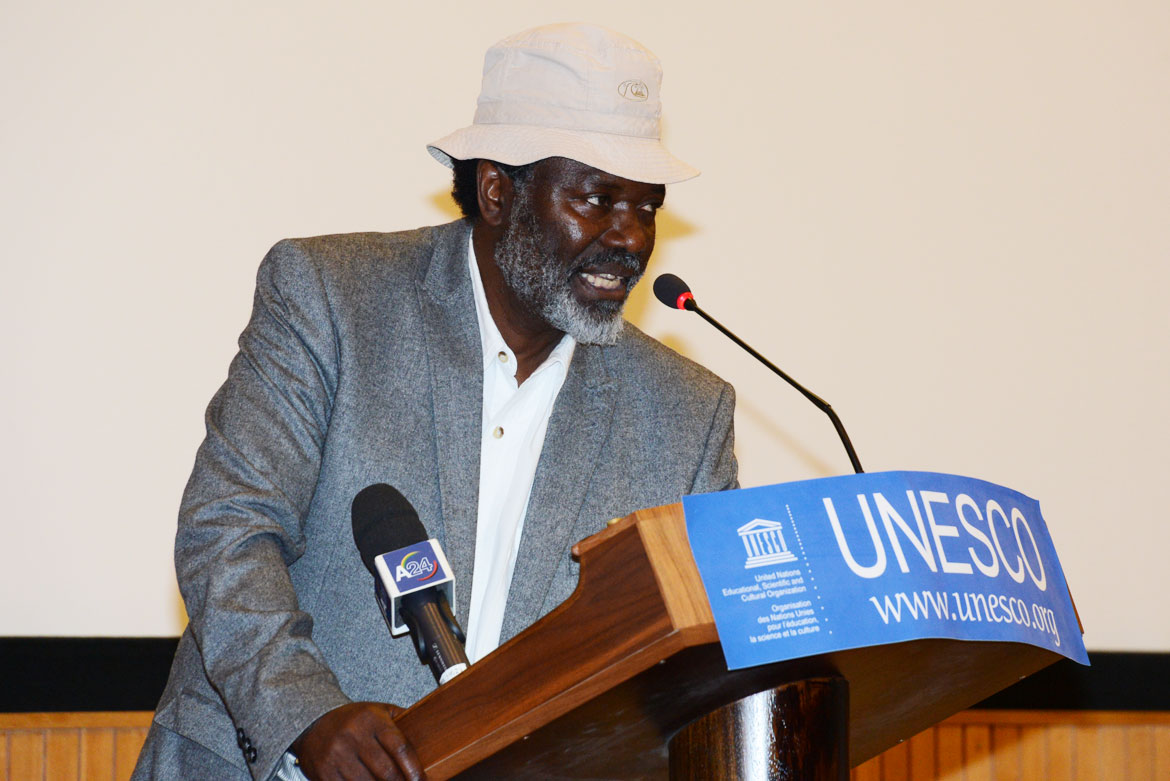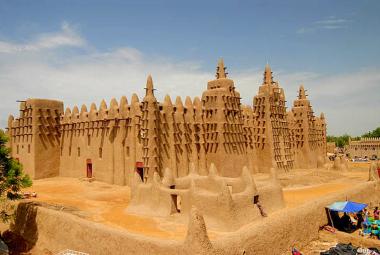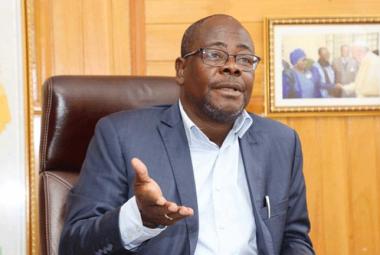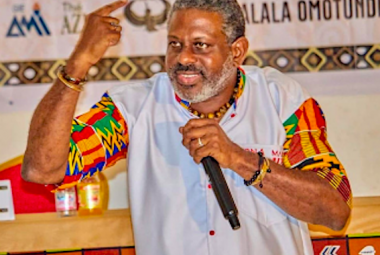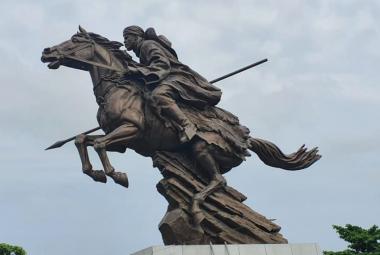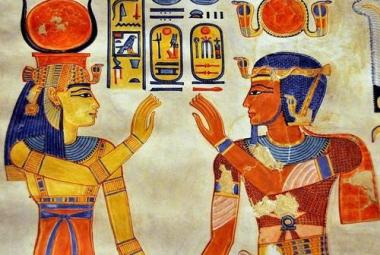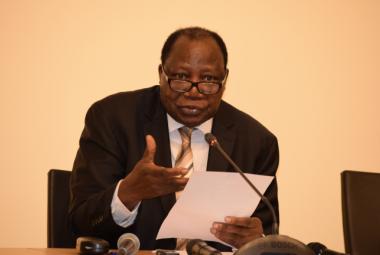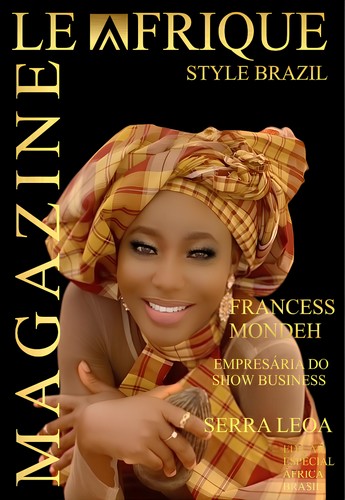The filmmaker of Angolan origin, Dom Pedro, who has already distinguished himself more than once through many of his films, has set himself a great challenge: to revisit the history of Tango. Result: an extraordinary film with a title that could not be more evocative of “Tango Negro” which arouses so much passion and curiosity. AFRIQUE Destinations met some time ago the filmmaker who reveals and demonstrates, thanks in particular to the famous Argentinian musician Juan Carlos Cáceres, the African origins of Tango, through the hidden side of the history of Argentina considered until there as the cradle of this music whose many sonorities and choreographies nevertheless betray its deep origins. Starting with its name: Tango. An open-hearted and casual interview with Dom Pedro that the Editorial Board is republishing in its entirety.
AFRIQUE Destinations: Dom Pedro, you are a filmmaker of Angolan origin and you studied Cinema at the Conservatoire Libre du Cinéma Français (CLCF) at the same time as you live in France, could you give us a brief presentation of yourself for our readers?
Dom Pedro: As you already know, I was born in Angola and, as a child, I had to live outside my country, according to the will of my parents. Then, after a detour in one of the sister countries, I had to go as far as possible to flee my country in the grip of an infinitely devastating war. And as far as possible that I could find, at that time, it was obviously France!
What prompted you to make this film "Tango Negro" which arouses so much passion and interest?
At the time, I already knew that I could not live outside Africa and forget this wonderful continent which has brought so much to the whole world. Naturally, wherever I am, I have always carried Angola in my belly; therefore, thinking about contributing to the development of my country and, by extension, to the mother continent, is a mission from which I could not escape. It is for me a way of paying homage to all our people who, one day, found themselves uprooted, because far from their ancestral lands. And, in fact, with hindsight, I realize that nothing is improvised in my choices; because I ask myself questions from a very young age. I have always had the impression, sensations that a silent voice - from the Ancestors - spoke to me and guided me through my thoughts! Besides, I have no doubt about it; I deeply believe in it. Firmly.
Tell us how did you first meet the famous Argentinian musician Juan Carlos Cáceres?
It was in 2003, I believe, when I was finishing the shooting of a film entitled: “Kin-Malebo Danse”, in two episodes which already told the origins and evolution of African (Congolese) Rumba music! A friend - Efuka Longangé Nono - dancer and choreographer currently residing in Montevideo (Uruguay) - invited me to his home, when he was with Andrée Navarro - the famous journalist well known to RFI listeners around the world. But the latter, who is also a painter, knew Juan Carlos Caceres, also a painter, well. And, while speaking, Nono told him that I was considering making a film about the African roots of Tango; it did not surprise her, since she already had some echoes going in this direction, and knew that Juan Carlos Cáceres had already devoted many years of investigations to this theme. A few days later, I called him to request an interview with him… interview with him
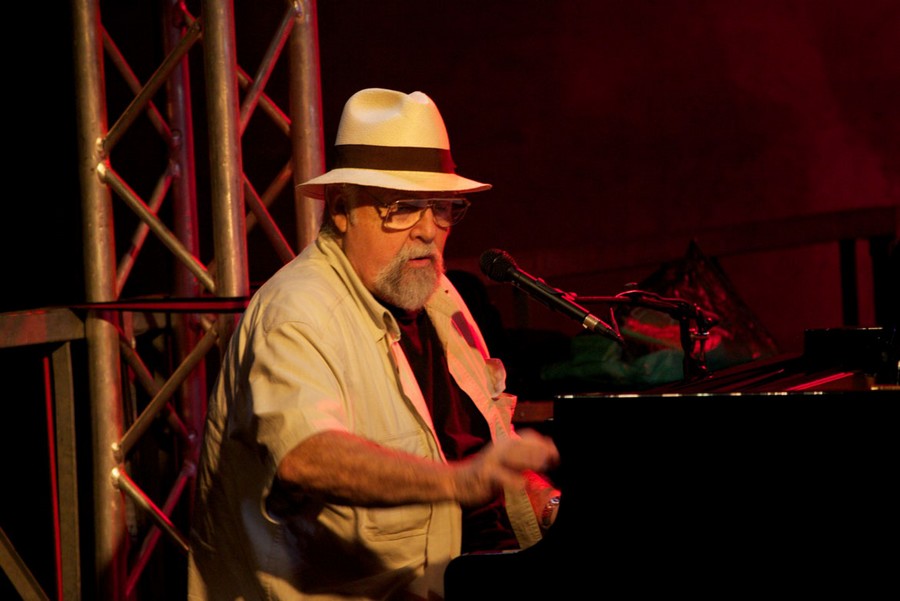
And I, who thought that our telephone conversation was going to last two or three minutes, we finally stayed for about three quarters of an hour! We got along so well and found each other that I had the impression of having already met or known him. From that moment, the man began to teach me many things in relation to his region or even his continent; and that's when I realized that, like for many Africans or those from elsewhere, the mistake was to believe that Africa stopped in Brazil. I thank Andrée, because it is thanks to his open-mindedness that I was able to meet this great man, who became my friend, before becoming very close, not to say a confidant. For me, Juan Carlos Cáceres was a true Humanist. A vigilante that many would have liked to have as a friend.
Juan Carlos Cárceres was one of those Argentinians who wanted to restore Tango to its Negro-African roots. Why you think?
Juan Carlos Cáceres is a great man with many repartee. He is one of those races of men of whom we have more or less lost track – a Progressive – in the noble sense of the word; a Humanist, because he put the human being above all else.
This is important historical data that should not be overlooked or minimized; because, if we want to revive the universalist “religion” which would consist in trying to speak with one voice, it is essential for us first to recognize their contribution to the fight for the independence of our countries. And, moreover, in the case of a country like Angola, how can we do otherwise? Black, White, Mixed, etc. it is not or should no longer be the "color" of a person's skin, it is not the appearance that must take precedence; because there are good and bad everywhere. Hence the importance of teaching History, our real History to the youngest of course, but also to the not so young who must know the truth about the different stages of the march of the African continent and the countries that make it up.
And this, without omitting the rest of the world, because everything is in fact linked, in a way. Juan Carlos Cáceres quickly understood the usefulness of such an approach. Because he was someone who always saw further than the others, he was a visionary, a vanguard. Consequently, he was sometimes "misunderstood" by some! However, if we really want to contribute to the knowledge of the world, which we would like to see as we think and not as it is imposed on us, we will necessarily have to do everything so that its vision will be emulated. And this cannot be the work of a single person, each of us must do it in his own sector in order to contribute his stone to the building: hence the reappropriation and transmission of our History. .
How long did it take you to make "Tango Negro" and did your interlocutors spontaneously join in the game?
“Tango Negro” is ten years of work, from the moment I opened the first page and/or the first research site on Tango, my meeting with Juan Carlos Cáceres and the search for funding; in addition, the production company with which I was to make the film had gone bankrupt, we had to go through these stages which made it even more complicated to carry out this project which I considered to be major. I was convinced that I was setting foot on something fabulous, which could bring some knowledge to Humanity. Finally, it took us 4 years of filming, mainly due to the difficulties of being able to raise the necessary budget which should allow us to go to Latin America.
In fact, since I had faith in what I was doing and the friends around me believed deeply in this project, like others, I did my best not to miss any opportunity; this is how I followed Juan Carlos where he could perform thanks in particular to the friends who often accompanied me. I would like to thank them warmly, even if many of them no longer believed in it. Just as I always want to thank the interlocutors who lent themselves to the game; and it should be noted that we sometimes had trouble "convincing" all those who were approached. Some had not even bothered to abandon us along the way, when the shooting conditions were already fixed! We had to hold on to avoid a nervous breakdown.
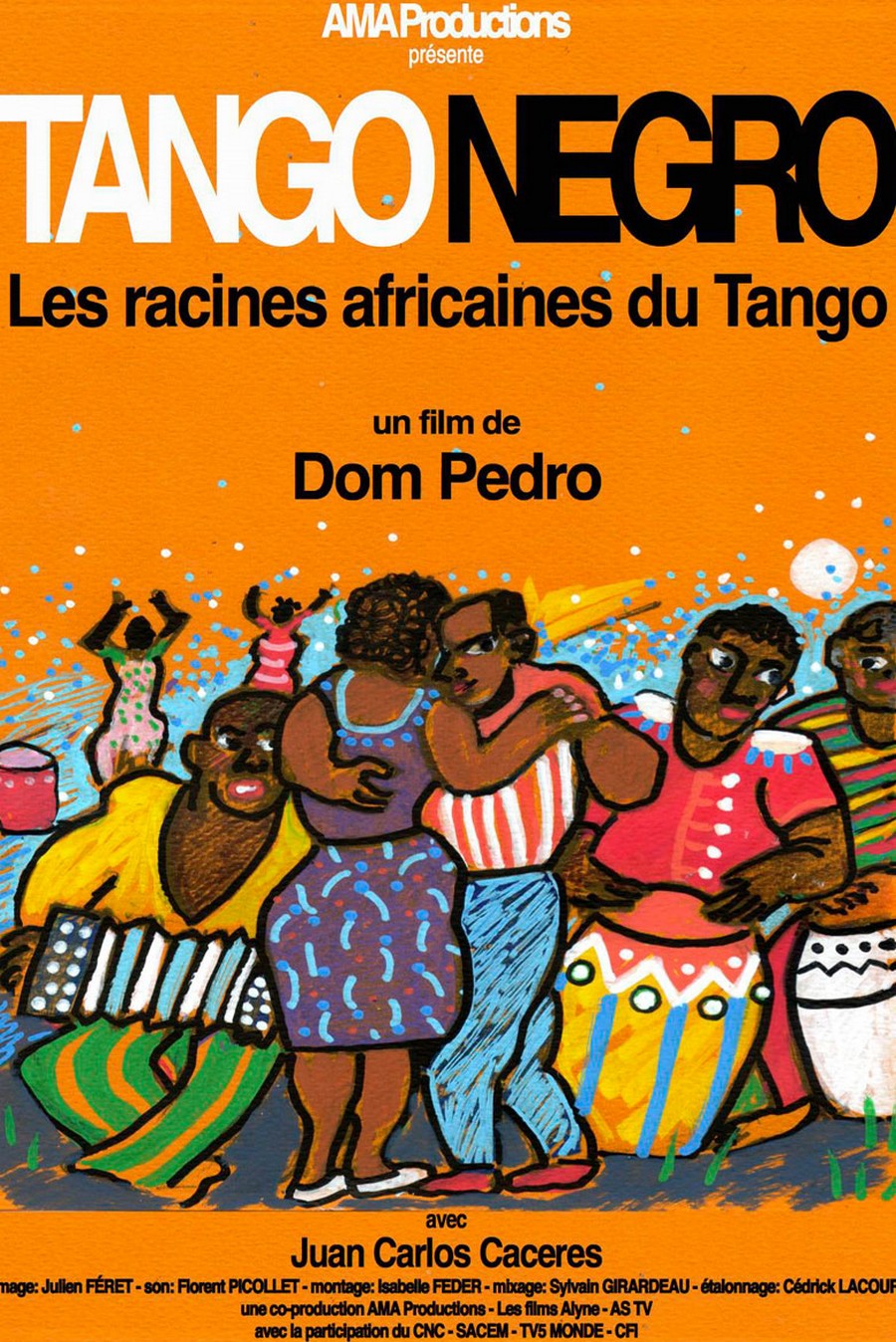
“Tango Negro” is voluntarily or involuntarily the deconstruction of a myth, that of a Tango of which Argentina is the cradle. How do Argentines perceive your work and what kind of criticism does the film meet?
It is voluntarily an approach whose goal was to attempt a deconstruction of multiple untruths, of which the world is visibly victim; and this, in full view of everyone. "As long as the lions do not have their historian, hunting stories will always turn to the glory of the hunter", says an African proverb. For a long time already, the hunter likes to tell the story of the animals he goes to hunt in the bush. But the day animals begin to tell their own story, people's outlook will change. And I believe that the time has come to demystify and demystify the version that many believed to be the real one, that is to say that of the hunter.
As for saying that “Argentina is the cradle” of Tango, I believe that it would not be correct to give it primacy. Because, if it is true that Buenos Aires is unquestionably by far its capital, we must all the same remember that Julio Sosa, one of the first stars of this music, is of Uruguayan origin but that she made all his career in Buenos Aires, where the phonographic industry was more developed than in his country of origin. It is a perpetual "controversy" on which no one will be able to decide; just like the birth of Gardel by the way! But as it says in the film, each person is content to claim the place where he feels best and not where he was born, even if we never forget his roots. Of course, you always have to expect opinions, different reactions in each creation; and my film also seems to have its “detractors”.
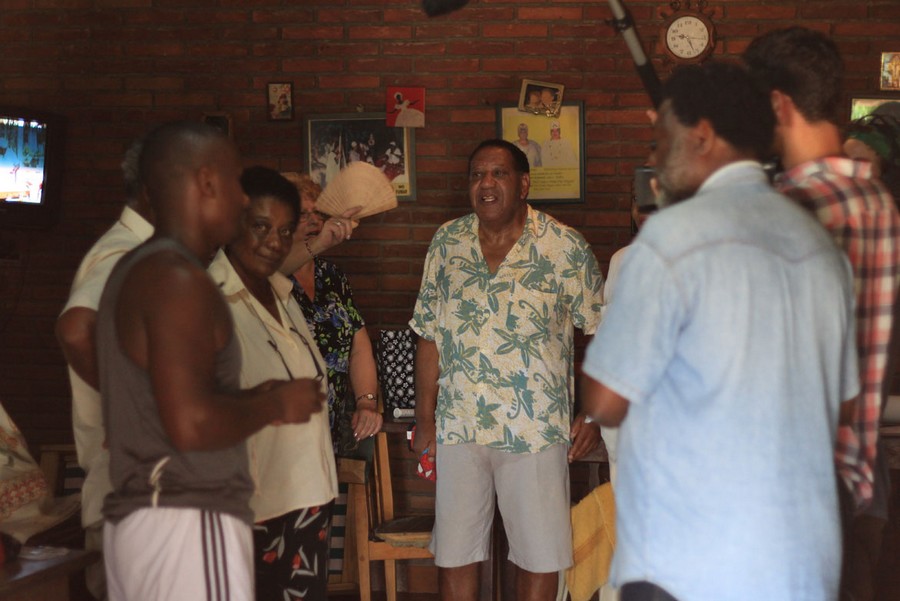
In fact, it's not that much! I believe that many have not yet admitted or understood that Tango, this music they adore so much, can have black roots from Africa. Juan Carlos Cáceres called them “deniers”! It is important that people have the freedom to react, to judge a work as they see fit, especially since, once made public, a film like “Tango Negro” will have difficulty gaining unanimity. And then, that's not so much what I'm looking for; my ardent wish is that people go beyond received ideas, manage their emotions well to seek to understand the why and how. Because the desired goal is in fact to contribute to the knowledge of a world whose contours it is increasingly difficult to define. Because of the falsifications and untruths that we have surrounded him with.
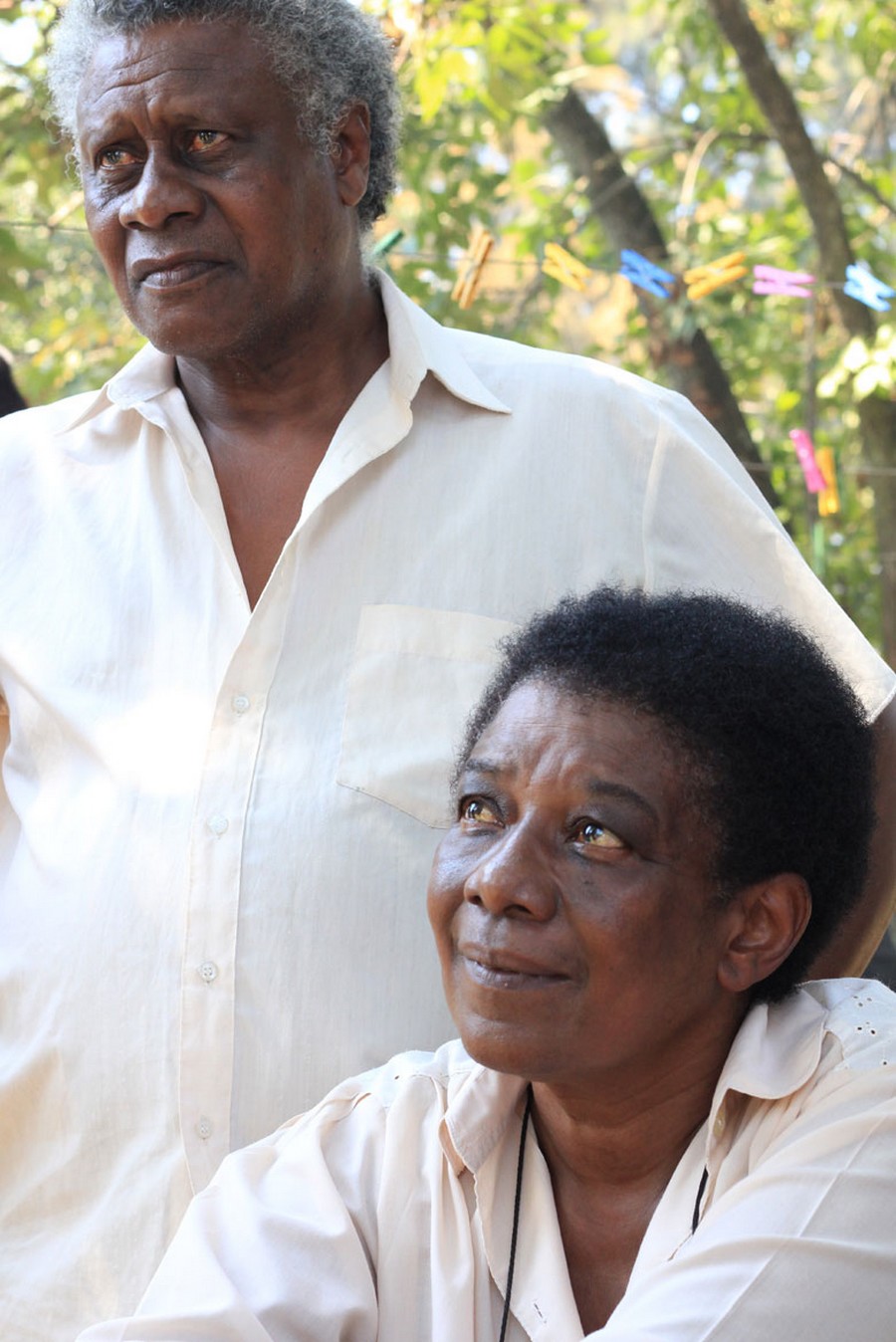
Dom Pedro, your film tackles the question of Blacks in Argentina which is almost a taboo subject, since to exaggerate a little, there are no more Blacks in Argentina whereas they are the basis of Tango. Where have all these Blacks gone?
As you know, to hide the black roots of Tango, it was absolutely necessary to make the whole world believe that there were never Blacks in this country! Therefore, since the two are linked, they could not admit, on the one hand, the presence of Black heritage in this music and, on the other hand, deny the existence of Black Africans in this country! The omission of the two was, for them, the only valid strategy… And they took the decision to rewrite the history of the country by publishing textbooks ranging from kindergarten to University, this is how they had falsified history from the country. But, over time, we realized that their trap, which had worked for years, no longer works; the hatch seems rusty and tongues are loosened little by little.
Today the youth of Argentina or, more broadly, of Rio del Plata is working to break all these taboos in which their past had locked them up. Thus, each of all these young people goes in search of their roots in order to better situate themselves in the history of their country. And it is also the debates in vogue in many Universities in the region. “How many whites have Negro figures? This question is asked in the film; which says a lot. Above all, let's not give up, the sun is already pointing its nose. Let's stand together and work together to bring light to a world that is rocking on a big lie finally "unmasked".
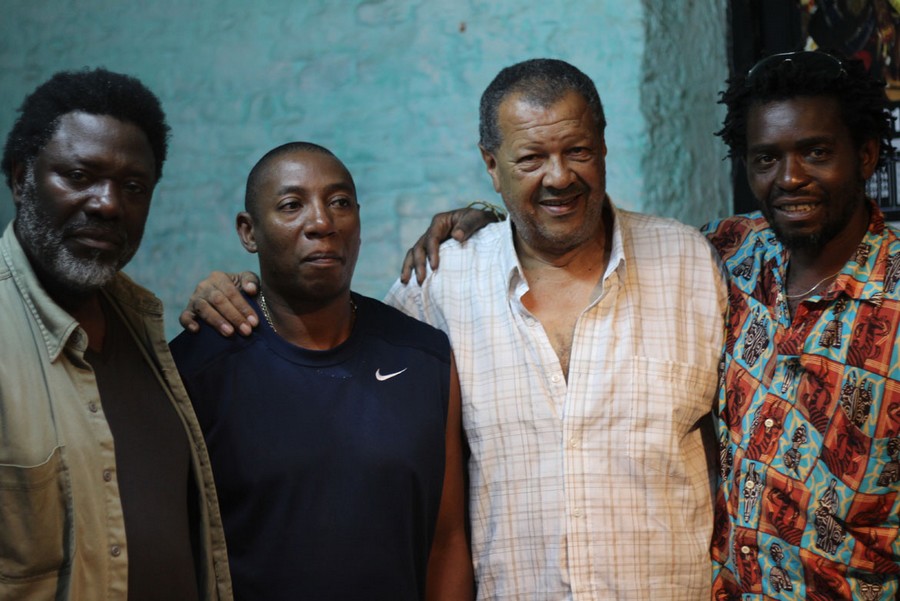
In your opinion, from which region would the music that gave its rhythm to Tango come from?
According to the name given to this music, it is undoubtedly in the region of the former Kingdom of Kongo (going from the Atlantic Ocean to a good part of present-day Cameroon) and whose capital - Mbanza Kongo - is found in the North of Angola, which we find the origin of the Tango. Moreover, it should be noted that the "Kizomba" dance, which is currently all the rage throughout the world and which is sometimes called "African Tango" originates from Angola (North). Moreover, in the regional capital of the Province of Uige, in the north of this country, I was surprised and comforted to discover that, in this city, which bears the same name as the Province, there is an old quarter answering in the name of "Kandombe"! However, in so-called Latin America, Candombe is one of the breasts at the base of what will later be called TANGO. As for the way of playing this music, the current rhythm is only the technical evolution developed at the time, following the use of new instruments and the influence of other musical rhythms: local and European. In the film, Juan Carlos Cáceres makes a disarming demonstration of this.
What does the word "Ntangu" which gave its name to Tango mean and to which modern African language does it still belong today?
Since the dawn of time, "Ntangu" has always meant and still means: sun, hour, time, space-time, epoch, period, epoch, etc. depending on the context in which it is used. This language, Kikongo, was the official language of the Kongo (inhabitant of the former Kingdom of Kongo mentioned above, whose influence extended beyond the "Bantu" sphere or Central Africa! And “Kikongo”, a language that has never died, continues to be spoken in very varied forms, especially in Angola, the DRC and Congo-Brazzaville.
In my mother tongue, the Nateni of North-West Benin Republic for example, the word Ntangu would be translated philologically to mean a lapping, that is to say the movement and/or the noise that water makes while streaming ?
I do not disagree, because the same word could evoke or mean something else according to the linguistic standards of each other. And this is completely normal and understandable; in this case, we should perhaps try to find out what would really be the starting point of the "Natemba of the North-West of Benin Republic" to fix the outlines. Hence the paramount importance of Philology, which could allow us to rethink how to proceed to set up a common language of communication on the African continent! Since we have enough “specialists”, it would not be in vain to think of creating working groups in order to propose solutions to decision-makers. Otherwise, what's the point of being a specialist?
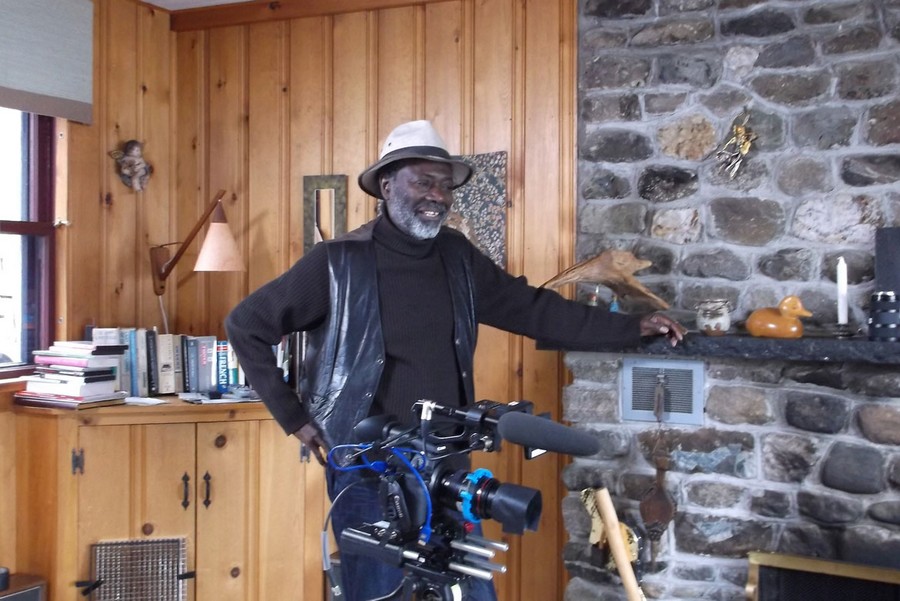
The film has already been screened in several countries around the world. When will it come out?
As you know, for all sorts of reasons, this film took 10 years to complete. I am fighting with hope to find in Europe, Africa or elsewhere a serious Distributor to allow us to edit the film and put it on the market. Yes, at each of the screenings, the demand is regular; but, at the same time, aware of the scope of the “product”, I do not want to rush into the outstretched hands of anyone; the ideal wish being to meet someone who can understand my approach and adhere to it. No, it's not just business as one might think. It is beyond, because my approach is also spiritual.
What contribution does your country of origin, Angola in this case, bring to your work, given that you are also through your work an ambassador so to speak of Angola abroad?
For now, it's more of a moral recognition, and it does me psychological good to be recognized by my family, even if I work in Universalism. But it should be noted that, during the "world premiere" of the film launched at UNESCO, the costs of this event were borne by the Angolan authorities. Which for me was a personal satisfaction; especially since, previously, the film had obtained the adhesion of the Experts of the program of the “Slave Route: “resistance, freedom to create and heritage”. Anyway, I am deeply proud to belong to this great country that is Angola. Finally, due to my work, some Angolan media did not hesitate to award me the title of Angolan Cultural Ambassador abroad… The best is yet to come!
What are Dom Pedro's projects after "Tango Negro"? “Samba Negro” maybe (laughs…)?
Yes, I'm bent over backwards! No, seriously, I believe that Samba, Capoeira, Batuque, Kizomba, Kuduro, etc., none of these expressions suffers from any occultation, even if many other countries dispute their paternity. In fact, evoking my near future, allow me to tell you a secret: it is that I am one of those old Stakhanovists who have since passed but who have nevertheless kept the reflex of constantly going to the oven! This is how, more than ever in action, I always have two or three projects written in advance! Concretely, I am currently working on a documentary, in the same vein as Tango, for which I am still awaiting funding. There is also optional fiction with “Real Ficção”, a Portuguese production; and for this fiction project, I would like to specify that the film will be shot entirely in Angola. This will be an opportunity for me to employ certain Angolan technicians or actors to begin my concrete contribution to the evolution of Angolan national cinema.
What message do you have for the public?
Throughout the world, wherever the film has already been screened, I deliver the same speech and I remain faithful to the same creed: above all, do not think that only Africa is the victim of misery; communities in all countries of the planet are affected, even if in the countries of the North the populations have the impression of living better than the rest of the world. It is an illusion, because each individual has his concerns; we are all housed in the same boat and victims of the traps from which we must all work together to escape. And, as no one can live happily alone, the important thing is to understand that we must be united and united to remedy this. It is absolutely necessary to dust off this planet, to give this world a new vision in keeping with human aspirations instead of indefinitely undergoing the diktat of those who impose on humanity their vision based on material rather than putting on a pedestal the To be human. I believe in it deeply, because it is possible.
I very often tend to address myself much more to young people, not only African but also those of the rest of the world. Because it is everywhere in crying lack of historical landmarks: the former ask themselves many questions because, regularly pointed out, they are the first to draw the harmful consequences; the latter think about it less or not at all since, since the time of slavery, still present today in other forms, and the colonial era which led to the struggles for the independence of third countries, their descendants always think they are superior to the first by the discourse they have swallowed and continue to swallow. Therefore, the idea of questioning the functioning of the world does not bother them because they firmly believe that all the signals speak in their favor and that they remain forever the “masters of the world”; and yet, they live like the first in total illusion! The key word is: Reappropriation and Transmission.
Thank you for giving me the floor.
Interview conducted by Marcus Boni Teiga
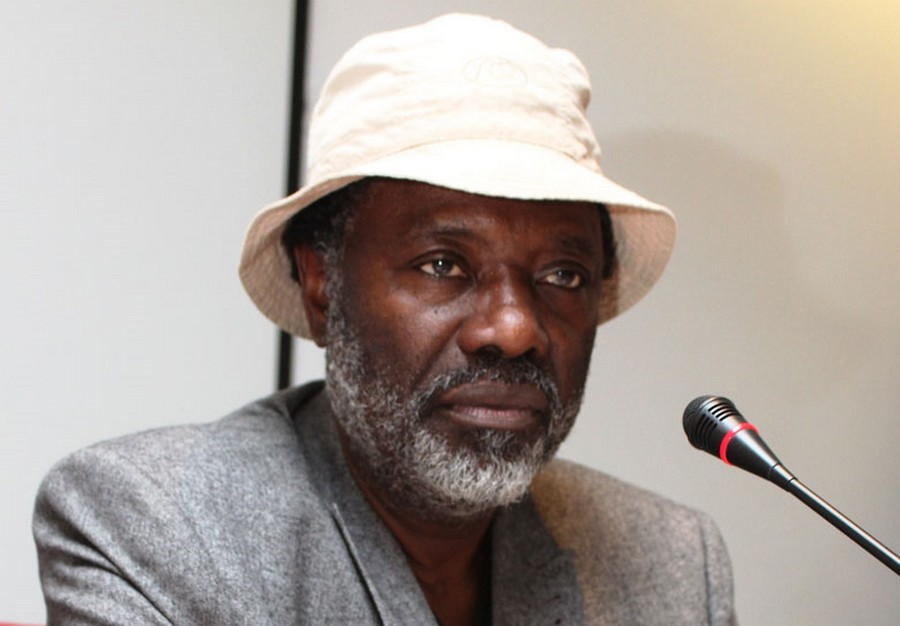
FILMOGRAPHY OF DOM PEDRO
2015 – Member of the Documentary Jury at the 31st edition of the “Views of Africa” Festival, Canada, in the “Regards d’Ici” Section.
2014 – Writing of a Feature Film Script entitled “Disasi”, in collaboration with Julien Féret. Project supported by and with the writing assistance of the CNC.
2013 – “TANGO NEGRO, the African roots of Tango”, A 90-minute documentary on the African origins of Argentine Tango with artist Juan Carlos Caceres. Produced by AMA Productions, co-produced by Les Films Alyne, TV5 MONDE and CFI pre-purchase with the support of the CNC and SACEM.
2007 – “Rido Bayonne, born in Africa”. A 90-minute documentary portrait of the Congolese musician and singer, Rido Bayonne, whose music has the art and the way of bringing together Africa, Europe, the north, the south, the funk, the Congolese rumba, the makossa Cameroonian and the classic! Produced by Grenade productions, co-produced by RFO with the support of CFI.
2006 – “Michelino, Star of Rumba”. A 52-minute documentary on the life of the lead guitarist of Tabu Ley's "Afrisa International" orchestra, the first group from Black Africa to perform at the Olympia in 1970! Produced by René Féret, Les Films Alyne with the support of CFI; broadcast on TV5 Afrique
2006 – “Pepe Felly”. A 52' documentary on the life of Pépé Felly, a Kino-Angolan guitarist and singer, also known for having invented a style of music, during a trip, inspired by the sound of train wheels on the rails: the Sébène. Produced by Les Films Alyne with the support of CFI; broadcast on TV5 Afrique
2006 – “Congo: Rhythms and Rumba”. Concert recorded in Paris (Unesco), in 2004. A pleiad of African artists gathered, during a charity evening, for the protection of the 5 ecological sites (Equatorial Forest) of the Democratic Republic of Congo classified world heritage by Unesco. 52 mins. Broadcast on CFI and soon on TV5 Afrique.
2004 – “Kin-Malebo Dance”. A 2×52 minute documentary, in Dvcam, on the origins and expansion of Rumba (Congolese music). Produced by Les Films Alyne (Films du xxème) with the help of the CNC and the support of TV5 Monde and the CFI. Co-production: JLM Production, ASTV and Cityzen TV. Broadcast on TV5 Afrique, TV5MONDE and CFI, France Ô, etc.
Official selection -TV&Video- at Fespaco 2005 (Burkina Faso). Official selection of the 2005 Amiens International Film Festival – Le Monde comme il va – (France). Broadcast in September 2004 on TV5 Afrique and CFI. In August 2005 on TV5 Monde.
2002 – “The Long Road to Peace”, 37 minutes, from Archive footage; produced by and for the Permanent Delegation of Angola to UNESCO (Paris, France). Distributed in the diplomatic circuit.
2002 – Supervision of a Documentary: “Around Peace”, 28 minutes, in Mini-Dvcam. A “Madinga Productions” production for the CSCA Association “Cercle Socio-Culturel Angolais” (Paris, France).
2002 – Assistant Director of “BARANI, story of a Tradition” by Pierre Yaméogo. 52-minute documentary in Dvcam on the Horse Festival of the Principality of Barani (Burkina Faso). Produced by “Dunia Productions” (Paris, France). In co-production with “Les Films de l’Espoir” (Burkina Faso).
2002 – “PACO”. Medium-length fiction film of 40 mins, in DVcam.; A “Dunia Productions” production (Paris, France); with the help of the French Ministry of Foreign Affairs. Co-produced by “Les Films de l’Espoir” (Burkina Faso). Selected at Fespaco 2003, “Discoveries and Panorama” (Burkina Faso).
2000 – “Bonga, in the name of Liberty”. Documentary of 52 mins, in digital Beta; A “5 Continents Productions” production; in co-production with Muzzik and Canal Horizons; with the help of the French Ministry of Foreign Affairs and the CNC. Broadcast on CANAL HORIZONS in June 2000; on Muzzik in October 2000 and rebroadcast in August 2001; broadcast on CFI in January 2002; on the TNB (Burkina Faso) in February 2002; broadcast twice in June 2002 on TV5; Broadcast on MEZZO in October 2002; Broadcast on TV5 Afrique in February 2003; Rebroadcast twice in July and once in August 2003 on MEZZO; etc…
Selected at the “Festival International du Film d’Amiens” (France) in 2000; at the “Second Meetings of Praia (Cape Verde)” in 2000; at “Fespaco (Burkina Faso)” in 2001; at FIPA, Biarritz (Program Market) in 2001; at the “Premières Nuits du Documentaire (Paris)” in 2001, etc.
1997 – “Ray Lema, Sharing Everything Everywhere”. Documentary of 52 mins., in Beta SP. A co-production: “Les Films du Rond-Point”, “Paris Première” and the CNC; Broadcast twice on ARTE France and 3 times on Paris Première, etc. Selected at Fipa 98 (Music and Performing Arts), France; at the “Vues d’Afrique” Festival of Quebec 98, Canada; Special Jury Mention at the “Festival International du Film d’Amiens 98”, (France), etc.
Co-director: Jean-Henri Meunier.



